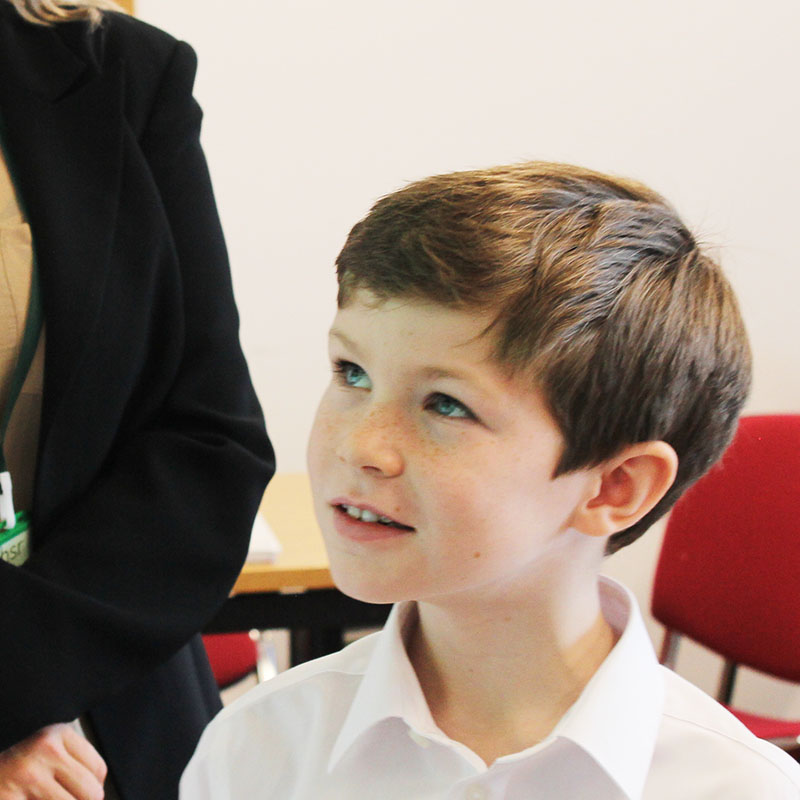

At HSR Psychology, anyone from the age of 2 upto the age of 25 could be suitable for EMDR.
EMDR may be suitable for a range of young people who have experienced trauma and/or:
Please contact us to find out more about how EMDR could benefit you and those around you.
EMDRbrings a number of benefits by allowing the young adult or child to process traumatic experiences. This can lead to:
Following EMDR there will be recommendations for providing emotional support to the young person. Recommendations can include relaxation and mindfulness strategies to maintain the child or young person's emotional progress.
Following an initial discussion EMDR can be carried out. You can read about our process below.
We provide EMDR within education, home and community settings or within one of our clinics. During EMDR, the psychotherapist or psychologist will ensure that the young person has useful stress management techniques to use during and between sessions to make them feel safe and secure.
The individual will identify the experience, negative thoughts, emotions or physical sensations which they will focus on during sessions, although they do not need to talk about the subject. Whilst the young person is thinking about this subject, our specialist will use bilateral stimulation techniques e.g. moving a finger back and forth whilst the individual follows its movement with their eyes, to activate certain areas of the brain. For younger children, the therapist may use creative techniques such as arts and crafts, to aid stabilisation and processing of experiences.Throughout a set of sessions, the individual will be given regular opportunities to reflect on their goals of therapy and how close they are to achieving these goals. Once the trauma has been processed, the EMDR therapist will use techniques to introduce a positive self-concept to the individual and reinforce against potential future difficulties.
After EMDR the child or young person will experience less emotional, physical and mental difficulties related to their past trauma and will be able to thrive. Following EMDR it may be suggested that we go ahead with further intervention. Outcomes from EMDR will be provided through direct feedback, or a written report if requested. We offer support to you during the whole process of any of our interventions. This includes optiontional follow up support sessions with ourselves.
A report is highly recommended following any intervention. This will include exactly what took place along with how our involvement impacted the young person and recommendations for going forward. A report from EMDR can be used for numerous reasons, such as: funding and support, medical use, school use, personal use, support with an application, or evidence for a different reason. Reasons for requesting EMDR vary, and if a report is not requested then feedback will be provided during a conversation with us as well as a brief written summary. You can find out more about our reports on our website.

We helped Harry to overcome his feelings of anger and guilt through using an EMDR intervention. Find out how we helped.
A mother and father came to HSR Psychology for help regarding their young son, Harry. Harry experienced an unexpected loss which led to flashbacks and feelings of anger and guilt. Harry’s parents wanted to help their son overcome these feelings of anger and guilt.
Our process took 12 weeks and Harry’s parents were fully involved in every step of the journey. Initially, we built up a relationship with Harry through play, then used play and art to identify and draw pictures of things which comforted Harry, for example his parents or his family pet. We also identified strategies for supporting Harry before and after sessions such as listening to music, drinking hot chocolate, and having cuddles with his parents. Once Harry felt safe and secure in the therapy setting, and the necessary support strategies were in place, we started processing the memory of his loss through eye movement desensitisation reprocessing (EMDR).
During sessions, Harry focused on a picture that he had drawn of the worst part of his memory of his loss, his negative thoughts of not being safe, his feelings of anger and guilt and his wish to feel happy and safe again. During the processing Harry used his drawings of his support systems to comfort himself when certain feelings became overwhelming.
After our involvement Harry was able to look at the picture of his memory without feeling upset, felt safe and was able to understand that when people die it was okay to feel sad and that it wasn’t anyone’s fault.
Arrange an initial discussion to find out how we can benefit your education setting. The initial discussion lasts 2 hours and is a starting point to identify needs. The cost is £260.
only
£260
Ready to get started? The next step is to speak to our team to find out more about the services we provide and how we can help. Call us on 0161 820 9229 or email office@hsrpsychology.co.uk